detail profile vision wei

Vision Wei
魏晨
atau dikenal sebagai
Info Pribadi
Peran Yang Di Mainkan Vision Wei
 The movie focuses on the battle...
The movie focuses on the battle...The Volunteers: The Battle of Life and Death 2024
The movie focuses on the battle of Cheolwon, where the 63rd Army of the Chinese People's Volunteer Army (CPVA) was ordered to enter the battlefield of Cheolwon in May 1951, just after a month-long battle, to fight against four divisions of the United Nations Army (UNA). The volunteers fought with bloodshed and finally brought the enemy to the negotiation table.
 On the edge of the Gobi...
On the edge of the Gobi...Black Dog 2024
On the edge of the Gobi desert in Northwest China, Lang returns to his hometown after being released from jail. While working for the local dog patrol team to clear the town of stray dogs before the Olympic Games, he strikes up an unlikely connection with a black dog. These two lonely souls embark on a journey together.
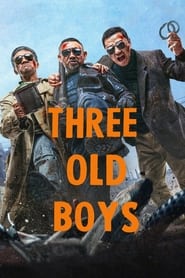 The masterminds behind the scenes attempted...
The masterminds behind the scenes attempted...Three Old Boys 2024
The masterminds behind the scenes attempted to unfreeze billions of assets, not hesitating to hire yakuza forces to launder money by extreme means. Behind everything lies a more intricate and complex criminal network and connections. In the face of the temptation of rivals and difficulties, "Trident" can firmly believe, hand in hand to solve the case, to bring the criminals to justice?
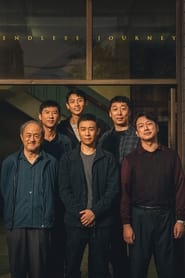 An accidental death of the suspect...
An accidental death of the suspect...Endless Journey 2023
An accidental death of the suspect leads to the entire team of the Third Division being imprisoned. Six years later, team leader Cheng Bing is released but remains consumed by the case. Over the next eleven years, he lives a normal life while secretly tracking down the killer, determined to see justice served.
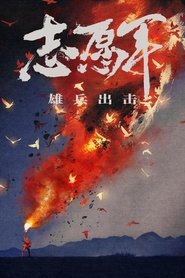 In the early days of the...
In the early days of the...The Volunteers: To the War 2023
In the early days of the founding of the People's Republic of China in 1949, New China was faced with "internal and external troubles". Since the outbreak of the Korean Civil War, the U.S. military has repeatedly provoked the border between China and North Korea, and civilians have been brutally bombed. In order to maintain the hard-won peace and long-term stability for generations, in October 1950, the Chinese People's Volunteers entered North Korea, and the "Resist US Aid Korea" war kicked off.
 This anthology drama presents four short...
This anthology drama presents four short...My Country, My Parents 2021
This anthology drama presents four short films honoring Chinese families, spotlighting the struggles of key groups across four pivotal eras: the revolution, construction, reform and opening up, and the new era, while highlighting their perseverance, dedication to ideals, and commitment to passing on the national spirit through generations.
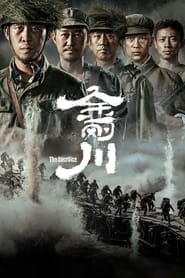 In 1953 the Korean War is entering...
In 1953 the Korean War is entering...Sacrifice 2020
In 1953, the Korean War is entering the final stage. The People's Volunteer Army of China has launched the last major battle in Kumsong. In order to arrive at the battleground on time and deliver enough force to the Kumsong front line, the soldiers have to defend themselves against the never ending bombing of enemy bombers and race with time to repair bridges, all under the circumstance of supply shortages and inferior equipment. The rarely told history slowly unfolds.
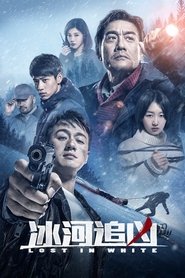 Lost in White takes places in...
Lost in White takes places in...Lost in White 2016
Lost in White takes places in the north-east of China, where two bodies have been found under the ice of a frozen lake, their remains made unidentifiable by carnivorous fish, but still bearing the mark of having been dragged with an ice hook. In charge of the investigation is Captain Zhou (Tony Leung Ka Fai), a dedicated cop who's dragging along his teenage daughter Xinyi (Zhou Dongyu). Soon he's joined by Wang Hao (Tong Dawei) a young Shanghai detective who's on a missing person case that has led him to the same village where the murders happened. The two cases prove to be connected: the missing person and the two victims were part of a quartet of businessmen who ten years ago opened a refinery in the region, and disposed of chemical waste in an unethical way that has poisoned the waters and led to malformed babies in the following decade. Is the missing businessman the killer, the next victim or a red herring?
 A man recounts his life in...
A man recounts his life in...Fleet of Time 2014
A man recounts his life in Beijing during the 1980s and reminisces about the one truth that allowed him to endure.
 The historical story of an enemy...
The historical story of an enemy...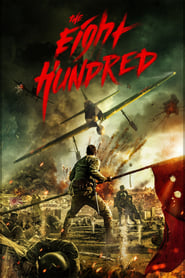 In 1937 eight hundred Chinese soldiers fight...
In 1937 eight hundred Chinese soldiers fight...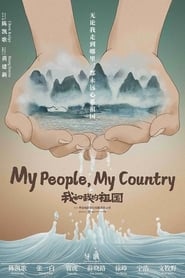 Anthology of short films directed by...
Anthology of short films directed by...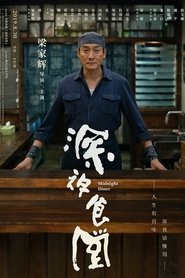 When people finish their day and...
When people finish their day and...